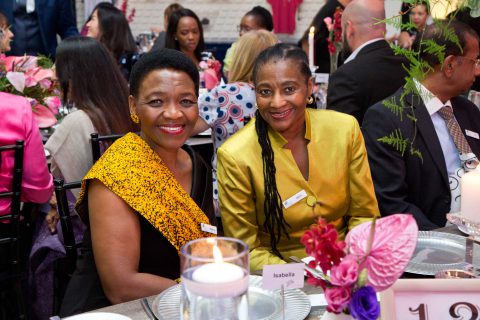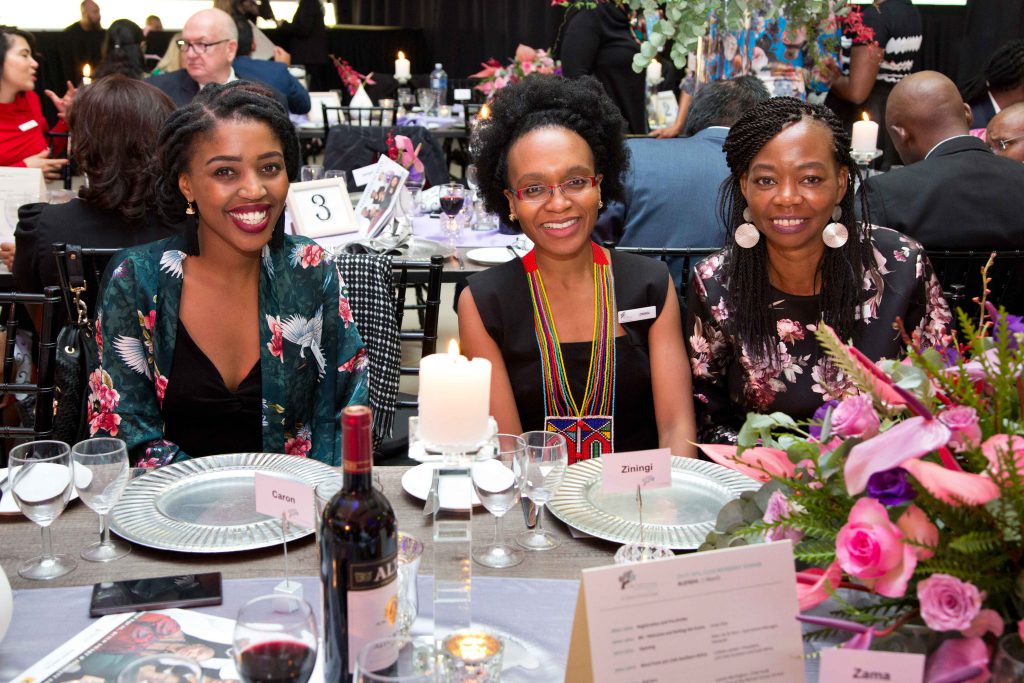Financial Mail Women
Prioritising The Gender Agenda
“Gender mainstreaming is not a women’s issue, it is a business issue… and we cannot have the conversation without men. Women should be shaping the economy, not just fitting into it.” These were some of the messages Colleen Larsen, president of the 30% Club Southern Africa chapter (30% CSA), delivered during her introductory address at the fifth annual members’ dinner in March.

Hosted at the flagship Maserati dealership in Bryanston, Johannesburg, the celebratory gala was attended by 170 members and invited guests, with Lauren Berrington, chief audit executive and chairperson of the IT forum at Bidvest, as keynote speaker.
Founded in 2010, the 30% Club is a global campaign with 11 chapters worldwide that aims to achieve a minimum of 30 per cent female representation on executive boards globally. The 30% CSA chapter was launched five years ago and, according to Larsen, has doubled its membership in the last year. The 30% CSA currently has 65 members spread across its branches in Cape Town, Durban and Johannesburg.
Larsen said that other 30% CSA accomplishments were garnered from the BoardWalk and Leaders Walk programmes, which, since inception, have been attended by more than 2 000 women, six of whom have gone on to become members of major boards.
Gender diversity on JSE boards
In South Africa, the 30% CSA is particularly crucial in light of the 2017 Johannesburg Stock Exchange (JSE) mandate that all listed companies need to have a gender diversity policy for their boards.
A research report on the state of gender parity on JSE-listed boards compiled by the 30% CSA in association with the Institute of Directors Southern Africa, WDB Investment Holdings and Korn Ferry in 2018, revealed that in 2017 only 10 of the 267 companies analysed had managed to achieve gender parity on their boards.
The good news though, said Larsen, is that the report “identified that there are currently 62 companies with 84 [board] positions that are going to become available for women in the next three to five years”.
The big debate: How to make board membership more inclusive?
The debate about women’s inclusion on boards continued with a spirited panel discussion, chaired by Malcolm Larsen,  company secretary of Business Engage, which included Christine Ramon, chief financial officer of Anglo Gold Ashanti; Michael Judin, partner at Judin Combrink Inc. Attorneys; Dineo Molefe, managing director of T-Systems; and Norman Mbazima, chairperson of Anglo American South Africa.
company secretary of Business Engage, which included Christine Ramon, chief financial officer of Anglo Gold Ashanti; Michael Judin, partner at Judin Combrink Inc. Attorneys; Dineo Molefe, managing director of T-Systems; and Norman Mbazima, chairperson of Anglo American South Africa.
The discussion covered various topics such as the effectiveness of introducing policy to enforce gender diversity. Was the JSE on the right track? Are women being sought in the right places? How do we ensure companies do not approach gender diversification as just another compliance challenge? And how is technology going to change the skills requirements for board memberships in the future?
The panel was in agreement that the JSE took the right step in mandating women’s inclusion on boards, however, we could not rely solely on policy. As Judin pointed out: “The people who actually should be pushing the gender agenda are shareholders because they ultimately decide on who sits on the board. So, they should actually be dictating to boards about their aspirations in this regard.”
Leadership accountability
Molefe, whose company T-Systems has been a key sponsor of the 30% CSA since inception, says that there is no one-size-fits-all approach to any of the issues raised in the gender inclusionary debate. “What the JSE has done is a good first step, but more needs to be done. We need to be more definitive in terms of the actual number of women required on boards and issue firmer guidelines as to the kind of numbers that create balance. For example, are we aiming for 30 per cent, because it has been proven to be a figure that facilitates impact? The same approach that was taken around BEE and transformation in terms of guidelines needs to be introduced in this instance. Companies and sectors must aspire to set out guidelines.”
But, Molefe says, the onus is not on the JSE to ensure that gender transformation happens, it is also up to the individual company boards that need to have concrete strategies in place. “I have found that organisations will have a talent pool of women, but they do not create the tools for them to succeed. The tools include things such as organisation-wide support, succession planning, sponsors, mentors and coaches. I have often seen that women are promoted to senior positions, but no one is invested or accountable for their success. For gender mainstreaming to be successful, someone, preferably the CEO, needs to be held accountable,” Molefe says.






 Sign-up and receive the Business Media MAGS newsletter OR SA Mining newsletter straight to your inbox.
Sign-up and receive the Business Media MAGS newsletter OR SA Mining newsletter straight to your inbox.